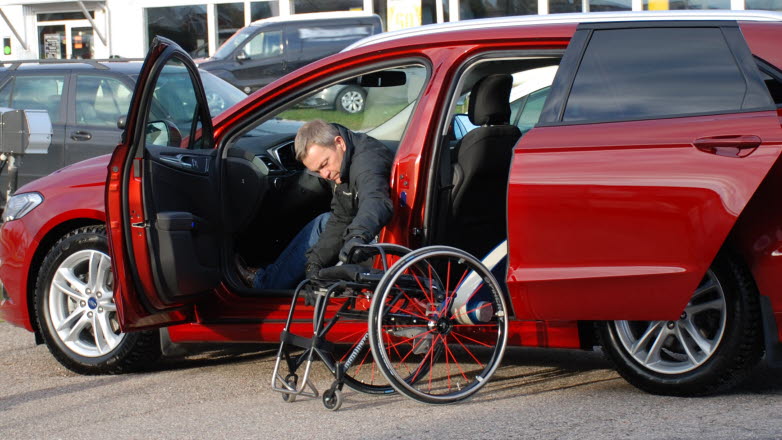"A mess" - harsh verdict on rules for car allowance

Complicated rules, deficient administration, and a considerable need for improvement. The verdict is harsh in a recent VTI report on Försäkringskassan’s (i.e., the Swedish Social Insurance Agency) support for people with physical impairments needing car adaptations. The study also demonstrates how significant the car is for people with various disabilities.
“A mess.” That’s how Helena Selander, a senior researcher and principal author of the report, describes car allowance to adults with disabilities and to families with children who have disabilities. Car allowance is granted and disbursed by Försäkringskassan, and consists of various allowances with which and/to buy or adapt a vehicle for the individual needs.
“I think I know a fair amount about this stuff, but I still get utterly confused every time I try to understand the rules. That’s how complex and convoluted they are,” Helena Selander says, adding that it makes her both sad and angry how badly the car allowance works.
“Again and again, responses to our survey showed how frustrated, sad and at worst resigned people are. Many feel that their conditions and needs are being questioned even though they have doctors’ certificates for them, and need car support in order for their everyday life to function. On top of that, the whole process is very time-consuming. In the worst case, this leads people to give up on applying for the support they are entitled to.”
Between 1999 and 2020 Försäkringskassan administered a total of 101,000 car support cases, and around 38,000 people were granted what is known as a basic allowance (grundbidrag). From a peak in 2006, when 27,000 people received the car allowance, the number has dwindled steadily, to 600 people in 2017. Additionally, the special allowance for driving licences has more or less ceased since 2013.
"The fact that so many fewer people receive this support means that the transport policy goal of everyone’s right to fundamental accessibility is not being achieved", says Helena Selander.
“It’s very important to have a well-functioning system that is cost-effective, legally certain and which allows more people to be independent in terms of mobility. For that reason, we need a thorough review of the rules, processes and administration of car support, which today have a negative impact on people with a particular need for well-functioning and safe mobility.”
The report, entitled Bilförare och passagerare med behov av bilanpassning (”Car drivers and passengers who need car adaptations”) is based on Försäkringskassan’s data on the car allowance, survey responses and interviews with adults who have functional impairments and parents of children who have them. Their responses demonstrate the very great importance that cars have for this group. For example, 98 per cent say that a car is very or fairly necessary in order to be able to visit family and friends, and 91 per cent say that a car is very significant for their quality of life.
A special inquiry appointed by the government is currently reviewing the regulatory framework for the car allowance and the division of responsibilities between different government agencies. The inquiry Ett enklare och mer ändamålsenligt bilstöd (”A simpler and more expedient system of car support”) is due to present its proposals by 30 November this year.
Don´t miss out on our news – subscribe now!
Stay informed with the latest research and news from VTI. Sign up for newsletters, sent by e-mail four times a year.
Contact
-
Helena Selander
Senior Researcher
helena.selander@vti.se

